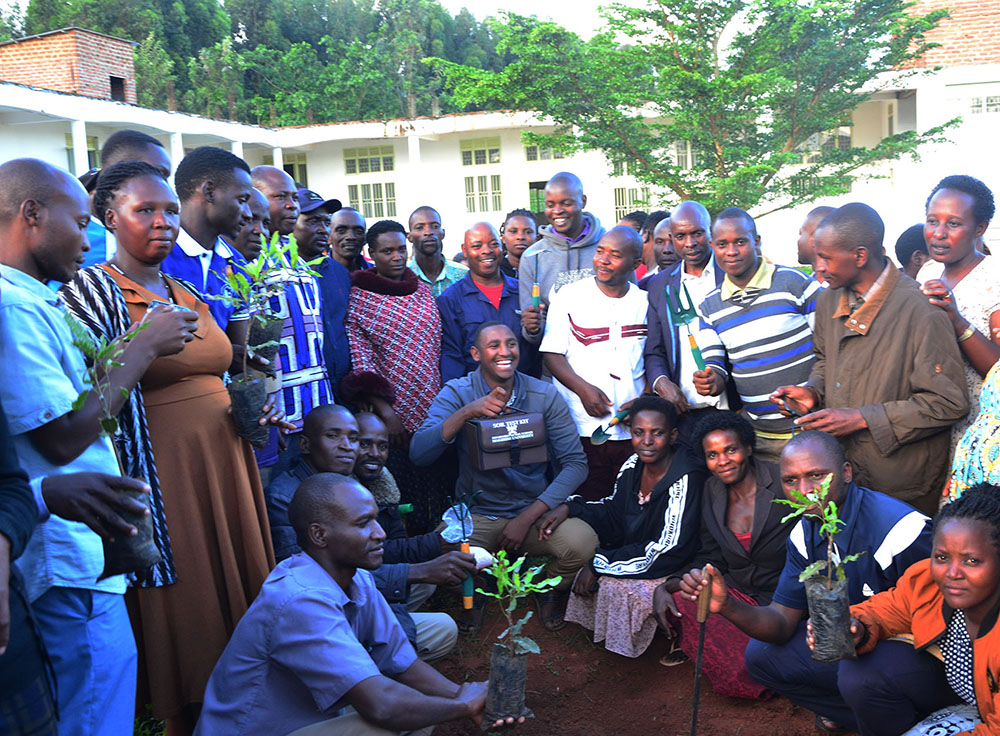By Stephen Nuwagira
There is need for new approaches that will encourage young people to embrace agriculture as a business and vocation, Ibanda University dean of students John Tumuhairwe has said.
With many people considering farming a job for the less education and rural peasants, it was important for the youth see it as ‘sexy’ and career worth considering, said the don.
So, we need to employ technology and promote agriculture mechanisation to attract young people into the sector, he said.
He added that profiling the young people from different professions, who have made it in agriculture, could be the other pull-factor for the youth to join the sector.
“This way, more will be enticed to venture into farming and along the other different areas of the agricultural value chain,” said Tumuhairwe.
It is also important to ease access to agro-finance especially for the youth and fresh graduates who do not have collateral, Tumuhairwe noted.
Trends
Tumuhairwe said universities and agricultural colleges should also tap the young people early by designing curriculum that enables students to get involved in the different activities along the agricultural value chain before they leave school. You can start simple with a university farm where students can practice farming activities using the skills from the classroom.
“They can then sell the produce through the college canteen or a student operated stall at the campus,” he said.
This means that while some students do farming, others will be involved in post-harvest handling, marketing and trade of the produce as well as and value addition, he explained.
Tumuhairwe was speaking during a one-day training workshop on macadamia growing at Ibanda University on December 16. The workshop attracted about 100 youth and teachers from Ibanda and neighbouring districts.
The don said regional universities in Kenya and Tanzania already have such setups for their agricultural colleges, initiatives, he admitted required adequate land of up to 200 acres to implement. But few local universities and farm institutes have that kind land, he added.
Empowering communities
Workshop facilitator Simon Muhumuza said macadamia was a generational crop that would enable families to earn sustainable income for decades.
He added that there was still huge demand for it, with most of the macadamia nuts in local supermarkets imported from abroad.
Macadamia is one of the priority crops being promoted by the government under the Parish Development Model. The Government is looking to ensure the masses have at least one high-value farming enterprise to help push them out of poverty.
While speaking at the event, Wilson Ahimbisa, a board member at Ibanda University, said the institution was aiming to empower communities with relevant skills for self-reliance.
He lauded efforts by the government to promote the growing of macadamia, saying it was a super crop with many food nutrients as well as enabling ordinary Ugandans to have a sustainable source of income.
What others say
Fortunate Ayebare, 28, said engaging in backyard farming and agribusiness ventures like vegetable growing can help boost earnings of teachers and young people. Farming also creates jobs for other youth along the value chain, added the teacher at Rwenkobwa Moslem Primary School. She however noted that lack of startup capital and limited land were some of the challenges that discourage young people from joining farming.
Meanwhile, Rev Fr Evaristo Ariyo, the deputy parish priest at Ibanda Parish Kagongo, has said that young people were central to any country’s development, a reason why they should be equipped with the right skills and knowledge to deepen their expertise in agribusiness.

Why youth in agriculture
According to the African Development Bank (AfDB) president, Akinwumi Adesina, agriculture is the “most important profession and business in the world”. Addressing Nigerian university students in 2020, the AfDB chief said the size of food and agriculture in Africa will rise to $1 trillion by 2030.
“The population of Africa, now at 1.2 billion, will double to 2.5 billion by 2050. They all must eat. And only through food and agribusiness can this be achieved,” he added.
Adesina urged agricultural universities to optimise their role in linking research, innovations and technologies to farmers and the food and agriculture industry.
“Africa’s youth must become leaders to help feed our world,” he advised.





